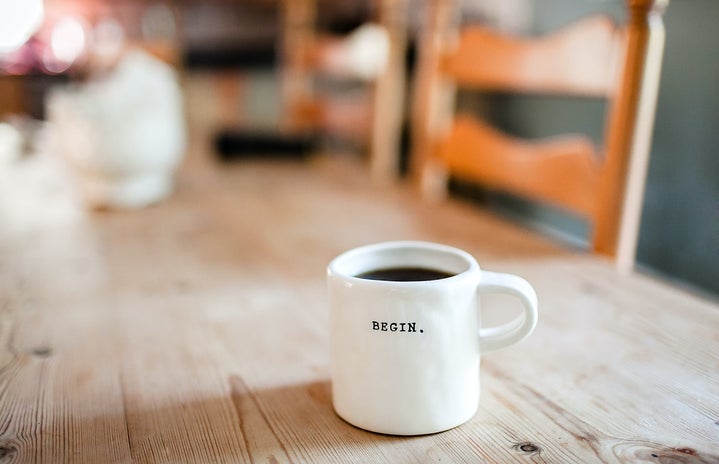Let’s face it, the Entertainment Industry is one of the most competitive industries worldwide, and with the insane growth of this little thing called “social media”, everybody’s uncle thinks they’re on their way to being the next “big thing”. In theory, it’s easier than ever to get discovered on Instagram, YouTube, Facebook, Snapchat, etc, but in reality, the internet just created millions of more competitors for you to outshine. Surprisingly, this isn’t supposed to be discouraging, because if you think about it, somebody has to make it, right? Venues are not going to stop producing concerts, and who’s to say your uncle won’t be the next “big thing” taking on the stage? So, here’s the top three reasons you haven’t made it thus far, and exactly what to do about it.
WHY YOU’RE GETTING REJECTED:
1. Your Talent is Virtually Useless
Say what you will about the Kardashian’s rise to fame, but my grandfather, who can barely send a text, could name at least half of them. An artist’s business/sales skills are far more valuable than their art will ever be in this lifetime. Sure, every once in a while, a new Rachel Berry will crawl out of the woodwork and stun the world with pure talent, but more often than not, you’ll find yourself listening to the radio/watching TV thinking “I could do that better”, and you probably could. Today’s entertainment industry is all about brand image, and without that, you might as well be talentless. Getting into the audition is about 30% of the work, selling your brand is 60%, and if you’re still even being considered, they’ll spend that last 10% of consideration on your talent.
2. Trends
Have you noticed a trend in what’s popular lately? Look at fashion, look at music, look at advertisements in the displays at the mall. Times are certainly changing, and even if your mindset does too, your look doesn’t necessarily follow suit. Looks. Are. Everything. This doesn’t mean you have to be the hottest human to walk the planet, though. Believe it or not, more and more directors are looking for “real” people. Of course, you’re real, but you might actually be too pretty. “So you agree, you think you’re really pretty?” Think about it like this, if you look like you could be a member of the plastics (good for you), you’re probably not going to get cast for a company all about individuality and diversity. 2018 will undoubtedly continue to be a year of acceptance, even amongst the ever so popular Photoshop scandals. If a casting director and/or client decides halfway through the audition process that they want an ethnically ambiguous brunette gymnast/actress who is at least 5’7, and you’re a short, pasty Caucasian who’s never even heard of a gym, it doesn’t matter if you nail that audition, because you’re not going to get it. Sometimes it even comes down to quotas. For big companies like theme parks that are constantly shoving ads in your face, they might be thinking “we just put three teenage girls on our last ad, why don’t we use four middle-aged men on the next one?”.
3. Your Reputation
Everybody who’s anybody knows everybody in the business. “It’s a small world after all”, you get the picture. When it does come down to talent, you’ve only got a quick snippet of time to let yours shine. Don’t blow the opportunity by not coming prepared. Trust me, every casting director/talent agent has heard every excuse you could even imagine. This puts us honest artists at a disadvantage because if you do actually get stuck in traffic, there are probably ten other people claiming the same and about a hundred others who got to their audition early and will gladly take your spot. Don’t just know your lines, really rehearse them. Getting the chance to audition is not even something every aspiring artist gets, so don’t brush yours off as just another round, even if you do get them frequently. Being prepared doesn’t just apply to auditions, it’s important even after you land your big break. Coming to set prepared is arguably more important than coming to an audition prepared because it will make or break your brand image. A mediocre or bad audition is probably going to be lost in the memory of someone who’s seen literally thousands of people, but when money comes into play on set, your name suddenly rings a bell. This brings us to the reputation part. Without actually producing a list, most agencies know their “A-list” talent. It is a heck of a lot easier to get bumped from that list than to be added to it. It’s okay to ask questions and make mistakes, but don’t become the squeaky wheel. Like I mentioned before, people in the industry talk. If a casting director found you unprofessional, your agent is not going to send you to them, or possibly any other casting director, at least until you’ve regained that trust. In a sea of submissions, people in high positions are less likely to give you a second chance when there are about a million people waiting for their first. Also keep in mind that referrals tend to mean a lot more than a resume and headshot when they’re from the right, or wrong, person.
HOW YOU CAN CHANGE IT:
1. Develop Your Brand
You can no longer blame a lack of a marketing degree for your sloppy brand image. There are infants with recognizable brands on the internet; either step up in the industry or get out. That’s just how it is in a competitive industry like this one. I won’t get into crazy detail for this article, specifically because different methods work for a variety of different people, but do your research and get to work! Everyone who is successful in the industry is constantly busy, they’re not likely to bend over backward for you. If you can ease their workload, and make yourself the convenient option, you’ll be surprised how quickly your calendar starts to fill up. Find auditions on your own, don’t wait around asking your agent for an update, or worse, accuse them of not doing their job. Gain a social media following, as cliché as that sounds, it really does make a difference. This applies more specifically to musicians, models, and brand ambassadors, but it certainly won’t hurt other aspiring artists to do the same. Building your brand is also important for yourself because it helps you figure out your strengths and weaknesses. How can a casting director be sure you’re right for the part if you aren’t even sure of it? Confidence really shows through your personality, and you can’t be lacking it when you stumble on a director’s question because you “haven’t really thought about that before”.
2. Network
Again, if you’ve put any effort into your career, this one is obvious, but you might not realize the extent of it. When your acting coach or personal manager tell you to volunteer your talents, do it. It may seem discouraging to constantly be performing for free, but I promise those things will pay off in some way if you always take full advantage of opportunities. Booking a gig shouldn’t be the end of your journey because it’s who you connect with on the job that helps you get your next one. You never know who’s going to end up in a position that could change your career, so don’t miss out on relationships. You should try to meet like-minded people to bounce ideas off of, but it is equally important to connect with people who are nothing like you. What if your network consists of only singers? How do you plan to record a demo of a shoestring budget? How about you connect with an aspiring producer who will let you record your own work for free if you sing on his new project for free? Maybe you’re an aspiring model, but you can’t even apply for an agency because you don’t have a portfolio. How can you get a portfolio if you never book work because you don’t have an agency? Try meeting up with aspiring photographers and work out a deal! There are actual Facebook groups for this kind of stuff! Full disclaimer, you should always be aware of speaking to strangers on the internet, your safety, and legalities of reproduction rights, etc. Now I’m not saying that you should be a suck-up or a fake friend because artists are people too and they’ll see right through that. What is important is that you make an attempt to leave a good impression on the people you meet, spread awareness of your brand image, and hey, maybe even make a couple lifelong friends along the way.
AND FINALLY….
3. Do as Much as Humanly Possible
…because why would you do any less for your dreams? Really though, we’ve all heard of some Victoria Secret model being discovered at the mall by a talent scout on vacation or something, but those success stories are rare, like the lottery, rare. A lot of people are scared to start doing amateur work at the community or friends level because no content has to be better than poor content, right? WRONG! Go make those terrible videos on your phone, because you know what? You will learn to be better. You don’t have to share those with a potential agent, but you’re so much better off taking a million terrible photographs in your backyard with your mom as your photographer, using her flip phone as a camera, and a flashlight as a lighting source until you finally learn your body’s most flattering poses than showing up on a professional set and not having a clue. Don’t underestimate extra work, you’ll get to closely observe how a professional set is run, without being under a whole lot of pressure. While it is important to take your craft seriously, you can’t take yourself too seriously. Also, don’t take things too personally, show business is a business after all, and sometimes you’re just not right for the part. That’s not a euphemism for “you’re terrible”, it’s just the truth.
If you take away anything from all of this, know that you really have to put in the work, but each “no” is one step closer to hearing a “yes”!’


